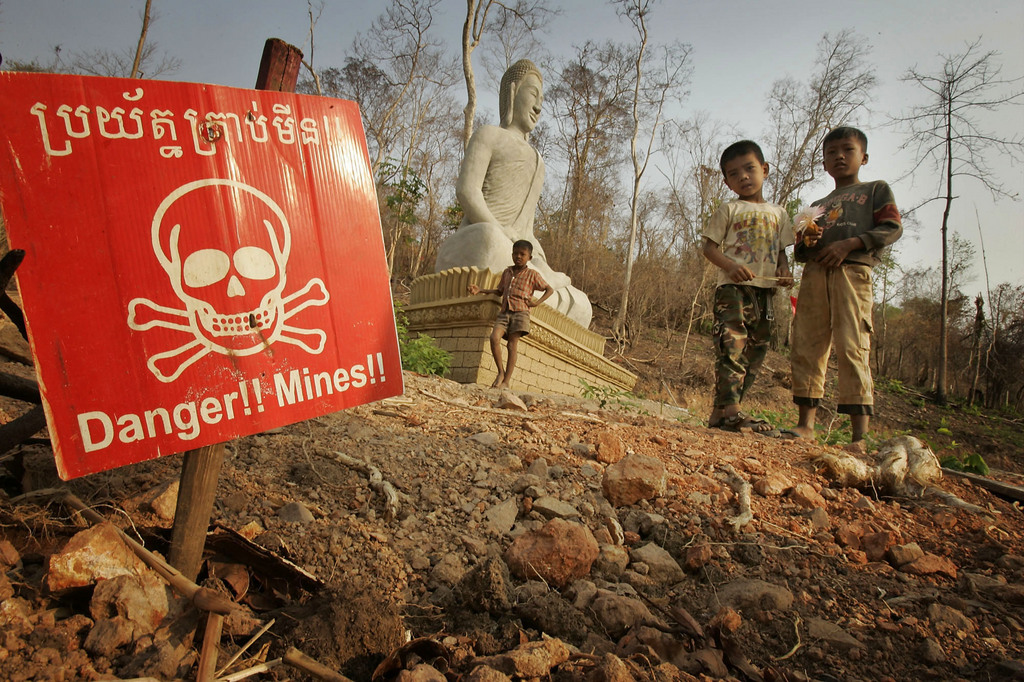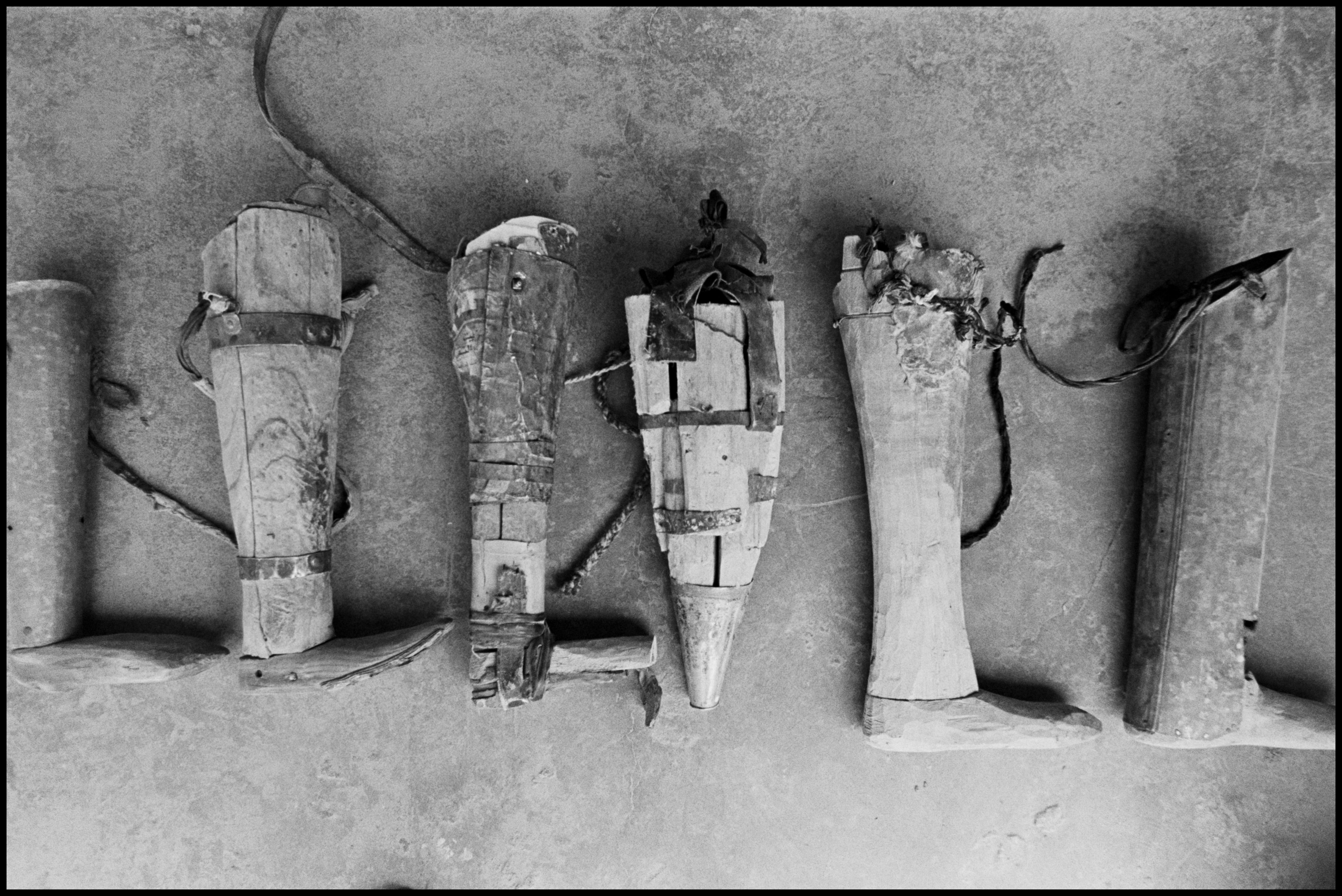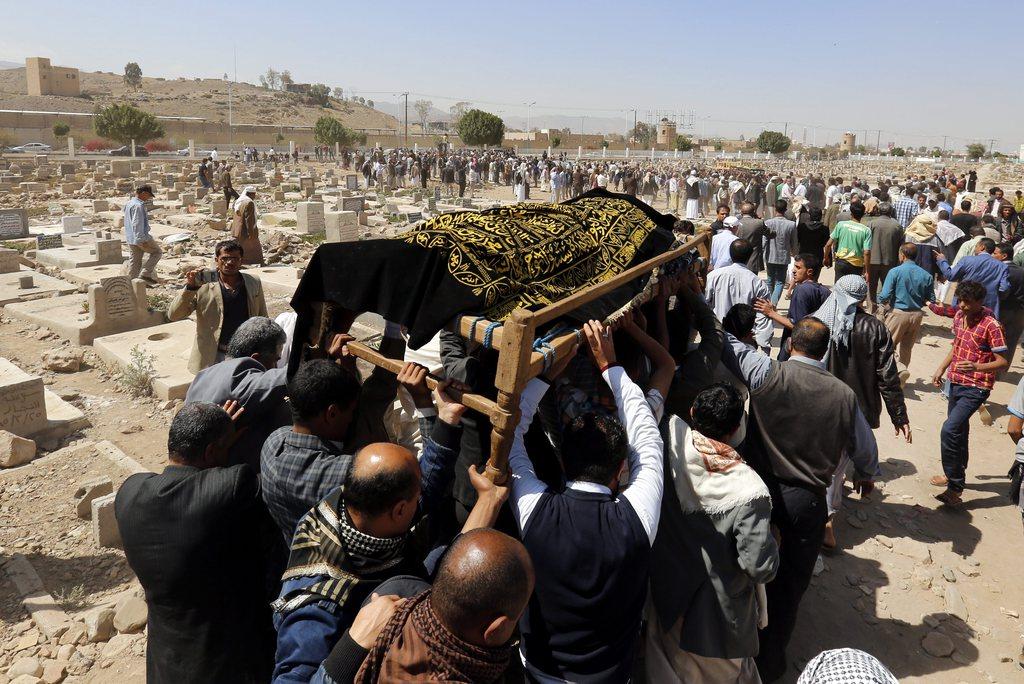Swiss wants India to sign treaty against landmine use

Switzerland’s ambassador to the UN, Sabrina Dallafior Matter, wants India to ratify the Ottawa convention on prohibiting the production and use of landmines. India is one of only four countries currently producing landmines.
Switzerland shares the convention’s view that “there is no military advantage of anti-personnel mines, particularly not in the light of the long-term humanitarian impact”, according to the ambassador,
Dallafior Matter is currently in Santiago, Chile for the 15th meeting of the Anti-Personnel Mine Ban ConventionExternal link, also known as the Ottawa Convention. So far, 162 countries have signed the treaty that obliges them to refrain from producing, using, stockpiling or transferring anti-personnel landmines. But 35, including India, have yet to ratify the convention.
India is also among a group of 11 countries (China, Cuba, India, Iran, Myanmar, North Korea, Pakistan, Russia, Singapore, South Korea and Vietnam) that have been identified as producers of anti-personnel mines. But only four among these are believed to manufacturing them currently.
“Those most likely to be actively producing are India, Myanmar, Pakistan and South Korea,“ says the Landmine Monitor ReportExternal link for 2016 produced by the Geneva-based Nobel-prize winning International Campaign to Ban Landmines.
The report also lists India as the largest stockpiler of anti-personnel mines after Russia and Pakistan with estimates of 4-5 million units. Dallafior Matter says India should be encouraged to join by allowing the country to participate in meetings of the convention, though formal and informal lobbying as well as supporting civil society efforts.
Wary neighbours
“The rationale that India has been using for some time is that the landmines are a deterrent to insurgents along the border with Pakistan. But the victims of landmines have been Indian soldiers and civilians, while no insurgents have been affected,” says Yeshua Moser-Puangsuwan, editor of the Asian section of the Landmine Monitor Report.
In 2014, 16 people were injured and two killed by land mines in India, almost all in the Jammu Kashmir region bordering Pakistan. Of these casualties, six were civilians, including four children. In total, over 3,000 people have been affected by landmines in India, with over 1,000 deaths. Neighbouring Pakistan has suffered greater casualties, with over 4,000 affected so far, partly due to the involvement of non-state actors in the form of terrorist groups who resort to the use of Improvised Explosive Devices (IED).
Moser-Puangsuwan is hopeful that both India and Pakistan will join the convention at the same time given that “they are more concerned with each other than the rest of the world” when it comes to defence issues. He cites the example of Greece and Turkey who were not on the best of terms but signed the convention on the same day.
The South Asian region is slowly moving towards ending the use and stockpiling of landmines. According to Moser-Puangsuwan, the Sri Lankan cabinet has put forward a proposal to the parliament to this effect but is facing some resistance from the defence ministry. All political parties in Nepal are also in favour of signing the convention prohibiting landmines but lack of a stable government has delayed action so far.

In compliance with the JTI standards
More: SWI swissinfo.ch certified by the Journalism Trust Initiative












You can find an overview of ongoing debates with our journalists here . Please join us!
If you want to start a conversation about a topic raised in this article or want to report factual errors, email us at english@swissinfo.ch.